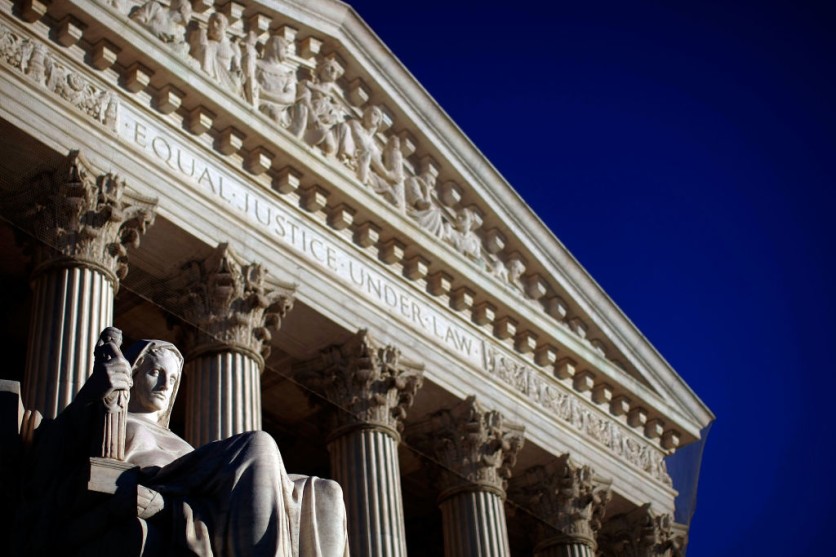The US is set to carry out the world's first execution using nitrogen gas, marking a controversial development that has prompted ethical concerns on a global scale. This has ignited discussions surrounding the ethical implications and humaneness of employing nitrogen gas as a method of capital punishment.

WASHINGTON - FEBRUARY 05: The U.S. Supreme Court is shown February 5, 2009 in Washington, DC. It was announced today that Supreme Court Justice Ruth Bader Ginsburg had surgery after being diagnosed with pancreatic cancer.
Raising Ethical Global Concerns
In a landmark development, the United States is poised to conduct the world's first execution using nitrogen gas, a method that has raised significant ethical concerns worldwide.
Interesting Engineering reported that this groundbreaking event is scheduled to unfold in the state of Alabama, featuring the execution of 58-year-old Kenneth Eugene Smith. Smith is facing the death penalty for his role in a 1989 murder case.
The legal defense team representing Smith has encountered setbacks, with both the US Supreme Court and a lower appeals court rejecting attempts to halt the execution.
Despite the arguments labeling the use of nitrogen gas as a "cruel and unusual" form of punishment, the unprecedented nature of this execution has intensified the ongoing debate surrounding the ethics of capital punishment.
As the global community watches closely, the outcome of this event is likely to shape discussions on the methods and ethical considerations surrounding executions, opening new avenues for deliberation on the humaneness of capital punishment practices.
Nitrogen hypoxia constitutes an execution method that induces oxygen deprivation by exposing an individual to a concentrated nitrogen gas environment.
During this procedure, the individual inhales nitrogen, displacing the vital oxygen necessary for life support. The depletion of oxygen causes hypoxia, a state characterized by insufficient oxygen to meet the body's metabolic requirements, ultimately leading to unconsciousness and, if prolonged, eventual death.
Performing World's First Nitrogen Gas Execution
The discussions surrounding the implementation of nitrogen hypoxia often revolve around its effectiveness, concerns regarding potential discomfort for the individual, and broader ethical considerations.
Alabama officials clarified that causing cellular breakdown by inhaling pure nitrogen without oxygen is expected to lead to death. According to reports from BBC, they anticipate that the Smith will lose consciousness within seconds and succumb to death within a matter of minutes.
Dr. Joel Zivot, an associate professor in the Department of Anesthesiology at Emory University School of Medicine, expressed doubt, emphasizing the need for a clear assertion regarding the humane nature of the execution method, which has not been adequately addressed.
Initially slated for euthanasia in November 2022, authorities faced challenges with the injection process due to difficulties in locating Smith's vein, resulting in the expiration of the execution permission by midnight. Smith has been on death row since 1996.
Along with two other U.S. states, ABC News reported that Alabama has approved the use of nitrogen hypoxia as an alternative execution method, driven by the challenges associated with procuring traditional drugs used in lethal injections.
The execution is scheduled within a 30-hour timeframe between January 25 and January 26, 2024. Only press representatives from the Associated Press, two print reporters, and two broadcast reporters will be granted permission to witness the execution.

ⓒ 2026 TECHTIMES.com All rights reserved. Do not reproduce without permission.




